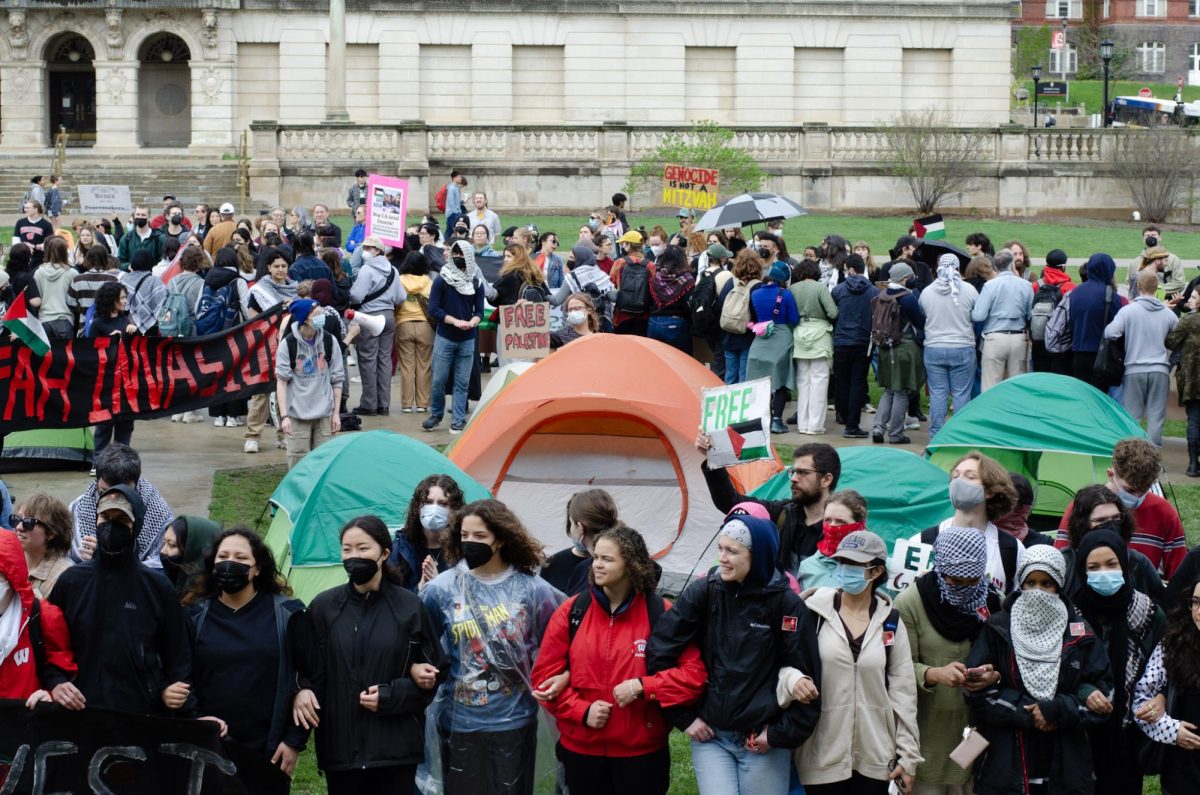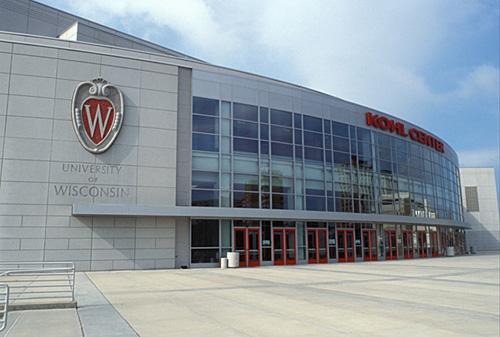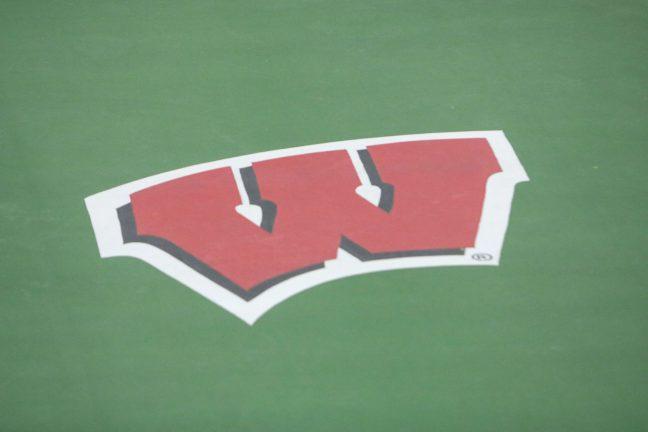A report recently aired on Fox News concerning the level of patriotism on American college campuses. It focused on one (obscure) university whose faculty and students recently passed a resolution condemning the war in Afghanistan and showed footage of an anti-war rally at another (equally obscure) university. The implication was clear: American universities aren’t rallying around the flag sufficiently.
It’s a shame Fox News didn’t visit UW, because what it would have found at this former bastion of anti-Vietnam sentiment is a decidedly different picture emerging. Support for the war among students may have been slow in coming, but it is as strong here as it is in the rest of the country.
There is, however, one way in which our response to the war is different from the rest of America’s, and it is also, I suspect, the reason for all the sanctimonious criticism leveled against students: We, unlike the rest of the country, respect those — few but vocal — members of our community who express views critical of the war. Although we may find them hopelessly uninformed and pathetically naíve, we understand the importance of dissent. Which is why it seems to me the “problem” of insufficient student support for the war isn’t really a problem at all; the problem is with those who are contemptuous of the sort of free and open debate students are trying to foster.
Support from many — mostly conservative — students on campus to the U.S.’s response to Sept. 11 was as immediate as it was definitive. But for some — mostly liberal — students, coming to terms with the war was far more complicated. Ours is a generation whose politics were instilled by parents who lived through the Vietnam War. They learned all too well the danger of unquestioning acquiescence to the American war machine, and their warnings have not been lost on us. So we were naturally — and, I think, rightly — skeptical when American bombs began to fall on Kabul.
But then we began to do precisely what we were being sent to school to do: think. We considered the concerns many in the Arab world have regarding our foreign policy (concerns which many of us share) and we came to a conclusion: American foreign policy is far from perfect, but nothing could ever justify the course of action taken Sept. 11. The perpetrators of those actions were criminals who were being aided and abetted by an oppressive regime. The fact that this regime was Islamic and non-white was irrelevant.
Equally significant has been the recognition that this is not Vietnam. In Vietnam, American troops fought and died to halt the spread of communism. In Afghanistan, American troops are not fighting and dying to defend the world against some abstract ideology. Our troops are in Afghanistan to protect American lives against a known enemy that has struck once without provocation and will, if left to its machinations, strike again.
But if our war in Afghanistan does have anything in common with Vietnam, it is the damage that has been done to the American psyche. In Vietnam, America lost its innocence. In Afghanistan, the casualty has been free and open debate. Since Sept. 11, we have witnessed politicians and pundits brand anyone who suggests a reexamination of our foreign policy a “fifth columnist.” This crowd (which spans the ideological spectrum) has framed the debate and defined its terms such that anything less than unwavering support is tantamount to treason. (This is how otherwise fervent war supporters who express legitimate concern about civilian casualties suddenly become “traitors.”)
Students are in a unique position to recognize the perniciousness of these tactics. Sadly, when it comes to free speech, universities have not always had the best track record. At times, the reigning liberal orthodoxy at universities like Wisconsin has been none too tolerant of dissent. Proponents of issues such as affirmative action and gay rights have framed debates such that detractors are deemed “racist” or “homophobic” and marginalized. Fortunately, students have recognized this is hardly the way to encourage a public discourse, and we have made great progress in creating a more respectful and intellectually diverse climate.
In 1894, the Board of Regents of the University of Wisconsin adopted a resolution that would become the guiding philosophy of this university.
“The great state University of Wisconsin,” the Regents declared, “should ever encourage that continual and fearless sifting and winnowing by which alone the truth can be found.”
Students have sifted and winnowed, and we have come out overwhelmingly in support of this war. It is unfortunate the only time politicians and the media pay us any attention is to criticize us for having the audacity to respect opposing viewpoints and encourage a vibrant public discourse.
— Chris McCall ([email protected]) is a junior majoring in German and political science.














